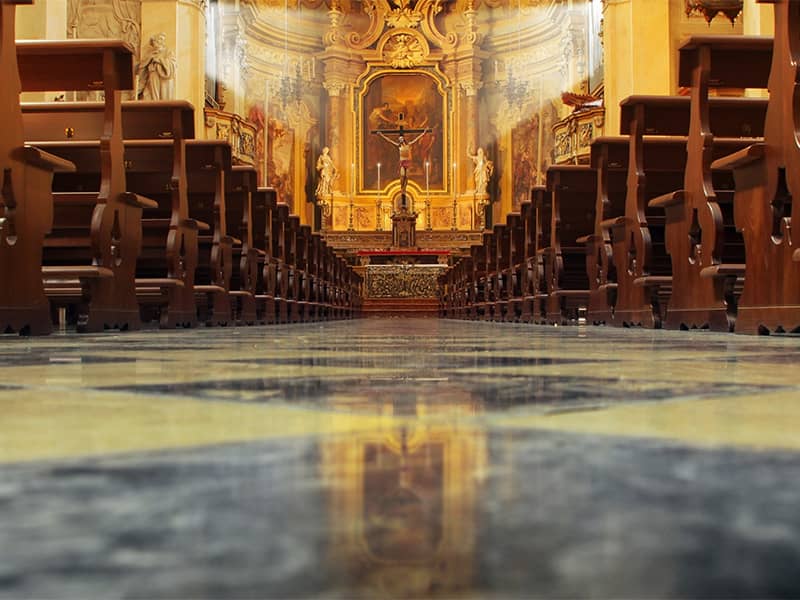The letter from Archbishop Michael Peers, distributed May 28 in all 2,400 Anglican congregations in Canada, explained that lawsuits filed by victims of physical and sexual abuse decades ago at church-run schools for native peoples seek hundreds of millions of dollars in damages.
"About 100 cases involve the proven abuse of children, and the perpetrators are in prison," Peers wrote. "The costs of litigation and settlements for these alone is sufficient to exhaust all the assets of the General Synod and of some dioceses involved."
It was shocking news for the more than 740,000 Anglicans, acknowledged Jim Boyles, general secretary of the Anglican Church of Canada. Few realized the General Synod's assets of $6.8 million--$2.7 million in property and $4.1 million in investments--could disappear.
"Although this issue has received attention in the media, the seriousness hadn't hit home," Boyles said from his Toronto office.
About 7,000 claims have been filed against the Canadian government involving residential schools, which native, or aboriginal, children were forced to attend. Dating back to the 19th century, the schools tried to assimilate aboriginals into the dominate white culture.
Canada has an estimated 800,000 aboriginals--including Indians, Inuit, and the Metis, a group of mixed French and Indian descent.
Students at the residential schools lost their native language and culture and often faced physical and sexual abuse.
Four churches that ran residential schools--Anglican, United Church of Canada, Presbyterian, and Roman Catholic-were named in some lawsuits. Those churches are now negotiating with the government on ways to settle the lawsuits or pay off any judgments.
While some dioceses of the Roman Catholic and Anglican churches could go bankrupt, the Anglican General Synod is the only national structure believed to be at risk. The Anglican Church operated 26 schools, closing the last ones in 1969, and faces 1,600 claims.
Boyles said a previous case in British Columbia established that the government and churches were "jointly and severally liable," meaning that if the churches cannot pay an amount ordered by a court, the government must.
The structure of the Anglican Church protects most congregations from liability, Boyles said. Only the dioceses named in lawsuits and the General Synod would have to pay, he said.
Peers' letter offered the same message to churchgoers worried that their weekly donations would go to lawyers.
"I want to assure all Anglicans that what is at risk financially are our assets, not the contributions that provide for the ongoing ministry and mission of the church at parish, diocesan or national levels," Peers wrote. "Your contributions serve the mission of the church--not the costs of litigation."
His letter, and a column in the monthly Anglican Journal newspaper, acknowledged the church's role in running the abusive residential schools.
"The facts are that the General Synod is guilty by participation and association with individuals who physically and sexually assaulted a substantial number of students at residential schools," journal editor David Harris wrote in a May editorial that said the General Synod may have to file for bankruptcy protection.
"The Anglican Church is unique in Canadian legal history in apparently convicting itself from its own mouth and apologizing its way into a legally untenable position," Hunter wrote in the National Post newspaper on May 29.
While the Anglicans lack cash, Boyles said, the church can offer resources and expertise for programs to help heal and reconcile with aboriginal communities.
"What we're saying to government is it makes sense to work out an agreement whereby we can contribute to the settlement...with the strength and gifts that we have," he explained. "Our feeling is Anglicans would generously support increased work involving healing and reconciliation with aboriginal people, but are not likely to contribute to legal costs."
Peers' letter said the General Synod would be irrevocably changed, no matter the solution. He previously has tried to inspire the faithful by noting a parallel with Christ's resurrection.
"On Good Friday, Jesus stopped," he was quoted as saying by the Anglican News Service. "His heart stopped beating. His blood stopped flowing. But the story didn't stop. God's purposes will not be thwarted.
"And so, if bankruptcy becomes inevitable, we really are called to be the body of Christ. Dead. Absolutely dead. And just as absolutely destined to rise."

